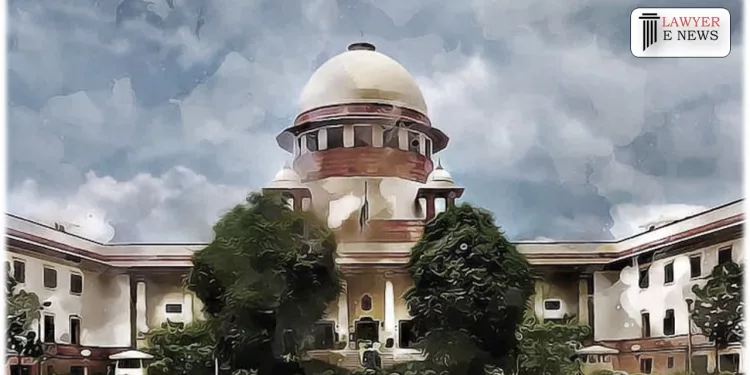Supreme Court Addresses Historic Delays and Abuse in Execution Proceedings: Res Judicata Principle Applicable in Execution

In a significant ruling, the Supreme Court of India has tackled the issue of prolonged delays and abuse of the execution process in a recent judgment dated October 30, 2023. The case highlights the dire situation where execution proceedings under Order XXI of the Code of Civil Procedure, 1908 (CPC) have been subjected to extensive delays, causing considerable hardship to decree holders.
The apex court’s judgment emphasizes the critical need to address these delays and prevent the misuse of the execution process. It starts by quoting a historical observation made in the judgment, stating, “The difficulties of a litigant in India begin when he has obtained a decree.” This observation underscores the longstanding issue of delays in the execution of decrees.
The case in question involved a landlord seeking eviction of tenants due to non-payment of rent, resulting in a consent decree in 2005. The decree permitted eviction if the tenants failed to pay rent for two consecutive months. However, the execution of this decree faced significant delays.
The central point of contention revolved around the execution order issued on February 12, 2013, which was challenged by the judgment debtors nearly four years later. The executing court initially rejected this challenge, citing maintainability, but the judgment debtors succeeded in revision. Subsequently, an appeal reached the Bombay High Court.
The Supreme Court observed that the res judicata principle applied in this case since the initial execution order was never contested, and thus, it had attained finality. The Court noted, “An execution proceeding works in different stages, and if the judgment debtors have failed to take an objection and have allowed the preliminary stage to come to an end, they cannot raise the objection subsequently.”
The apex court criticized the delays in the case, which had dragged on for almost two decades. It expressed concern over the misuse of the execution process and emphasized that execution proceedings were meant to be a “handmaid of justice” but were often misused to obstruct justice.
Quoting a relevant case law (Rahul S. Shah v. Jinendra Kumar Gandhi and Others), the Supreme Court condemned the abuse of process in execution proceedings and directed all civil courts to expedite execution. The Court also urged High Courts to update their rules relating to execution to ensure timely enforcement of decrees.
Supreme Court set aside the orders of the appellate court and the High Court, upholding the executing court’s order from September 28, 2017. The executing court was directed to complete the execution within six months.
This landmark judgment highlights the need for timely execution of decrees, the importance of res judicata in execution proceedings, and the Supreme Court’s commitment to addressing delays and abuse in the execution process.
Date of Decision: 30 October 2023





